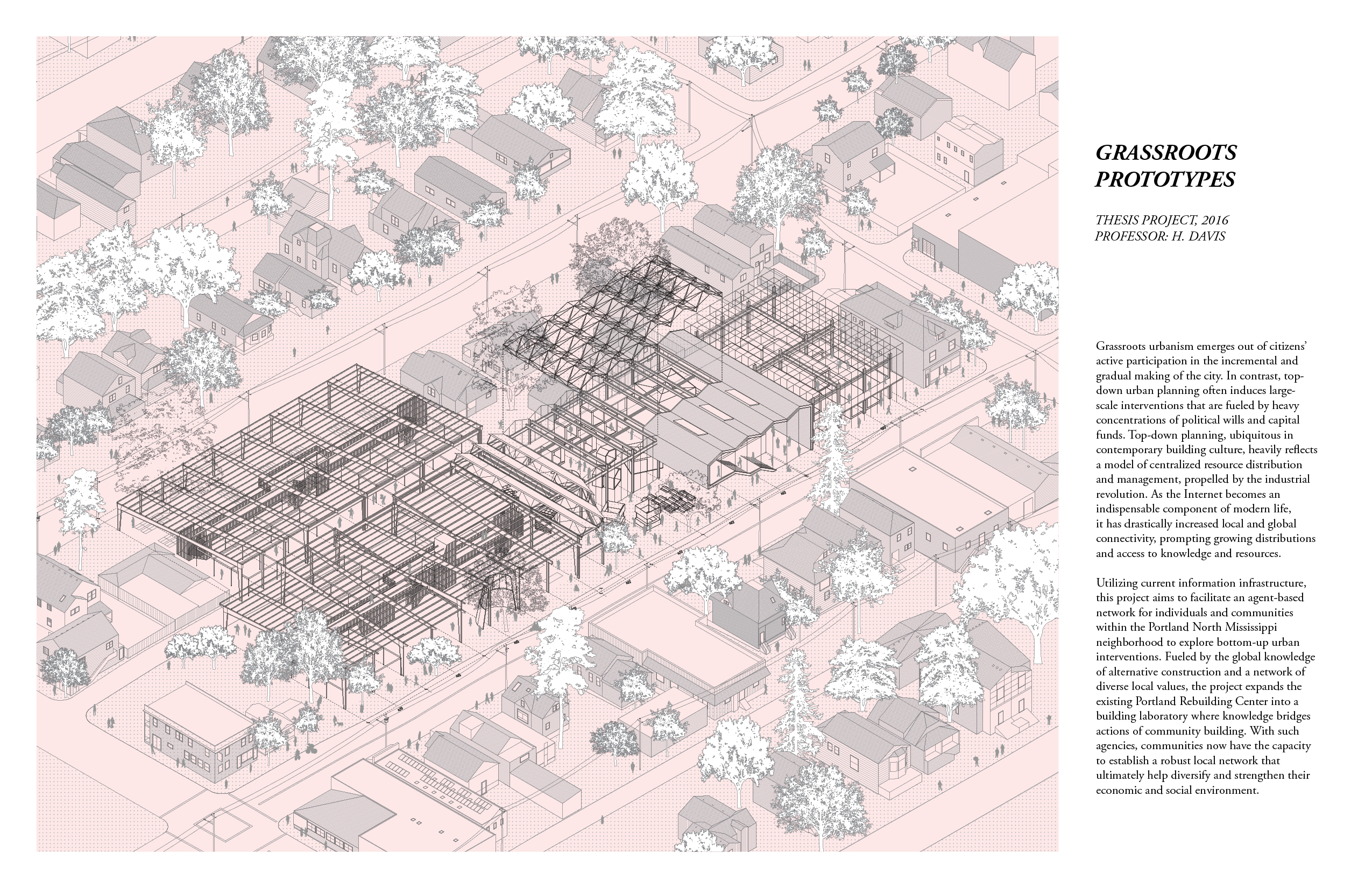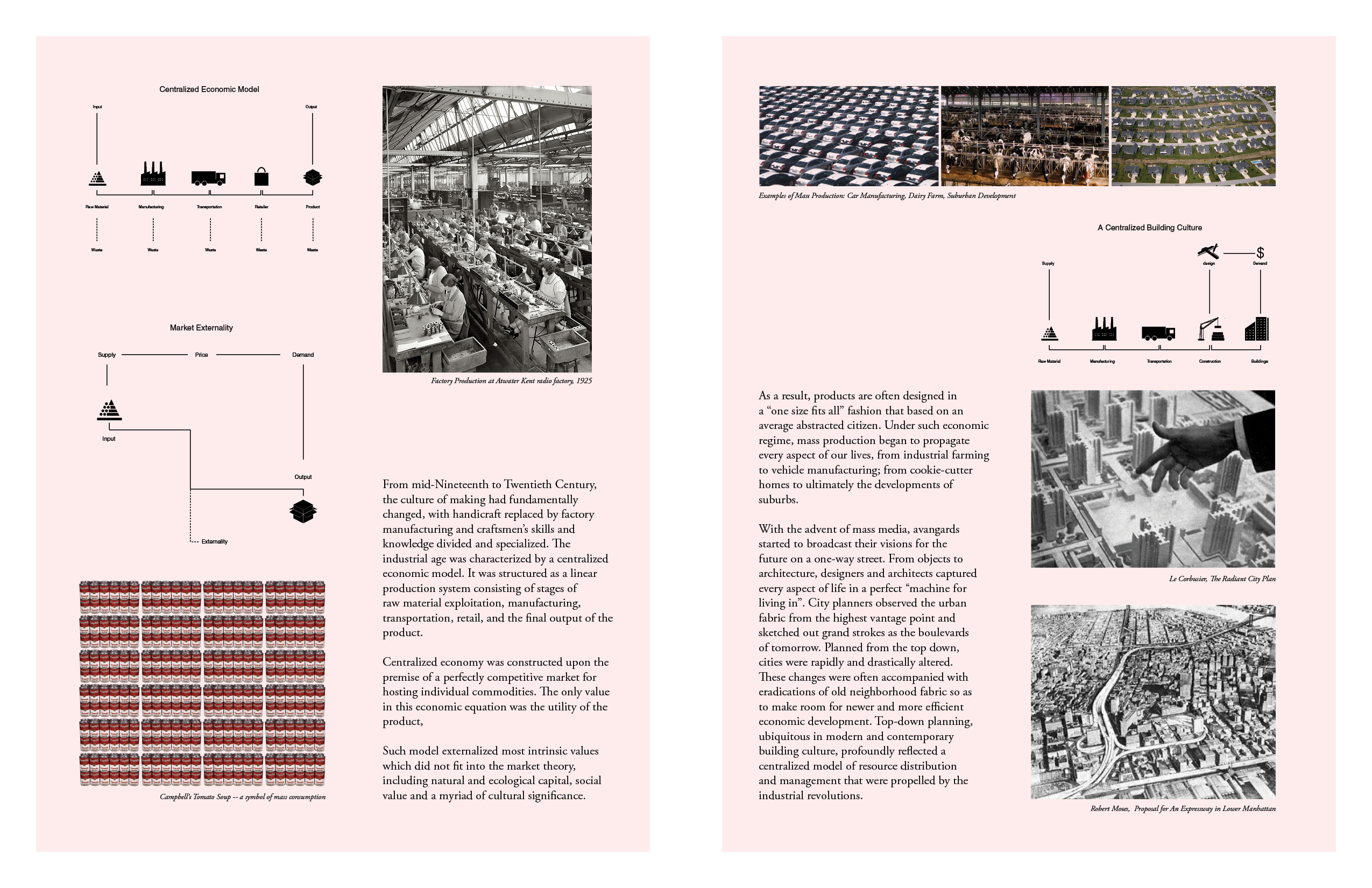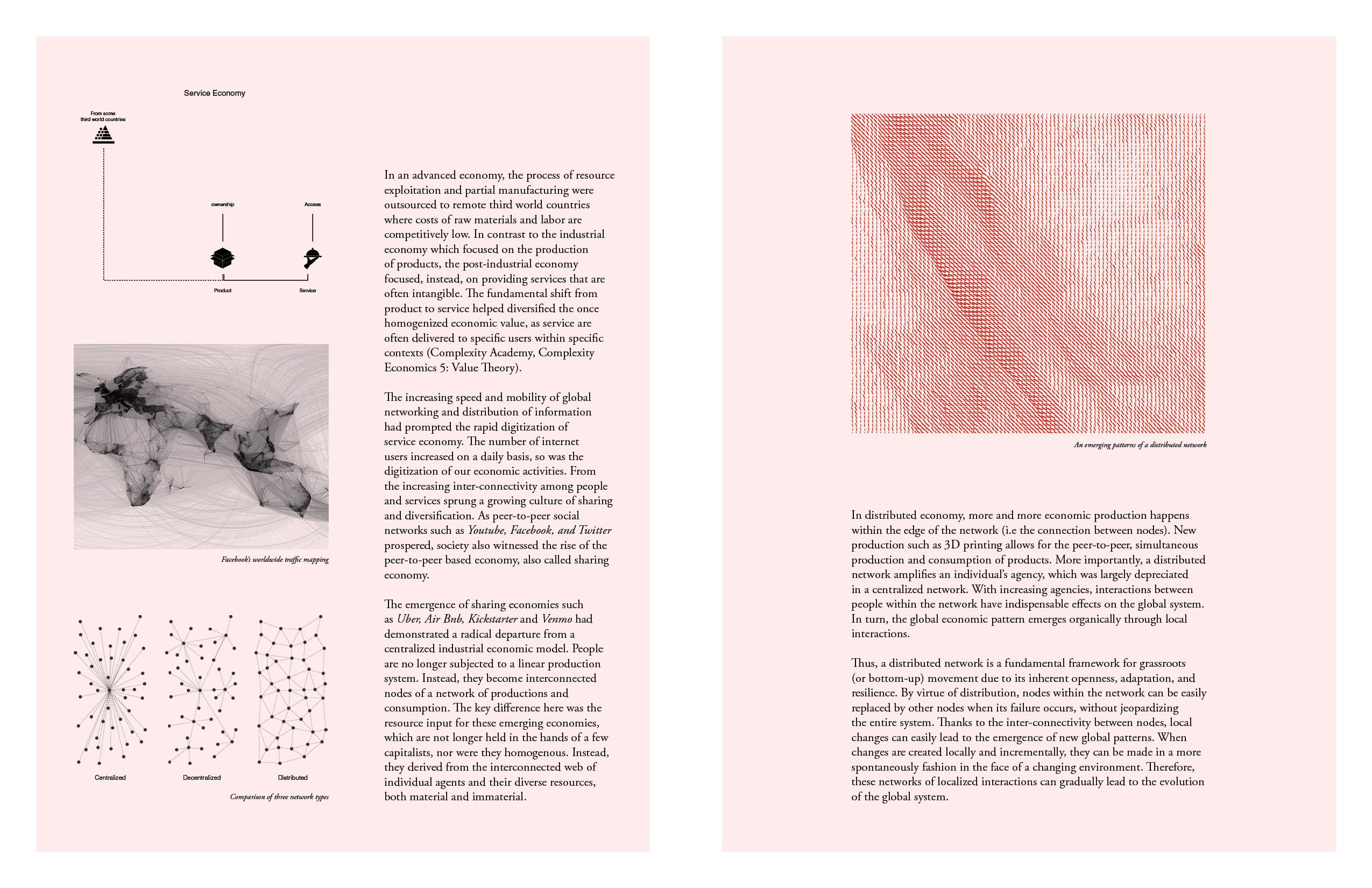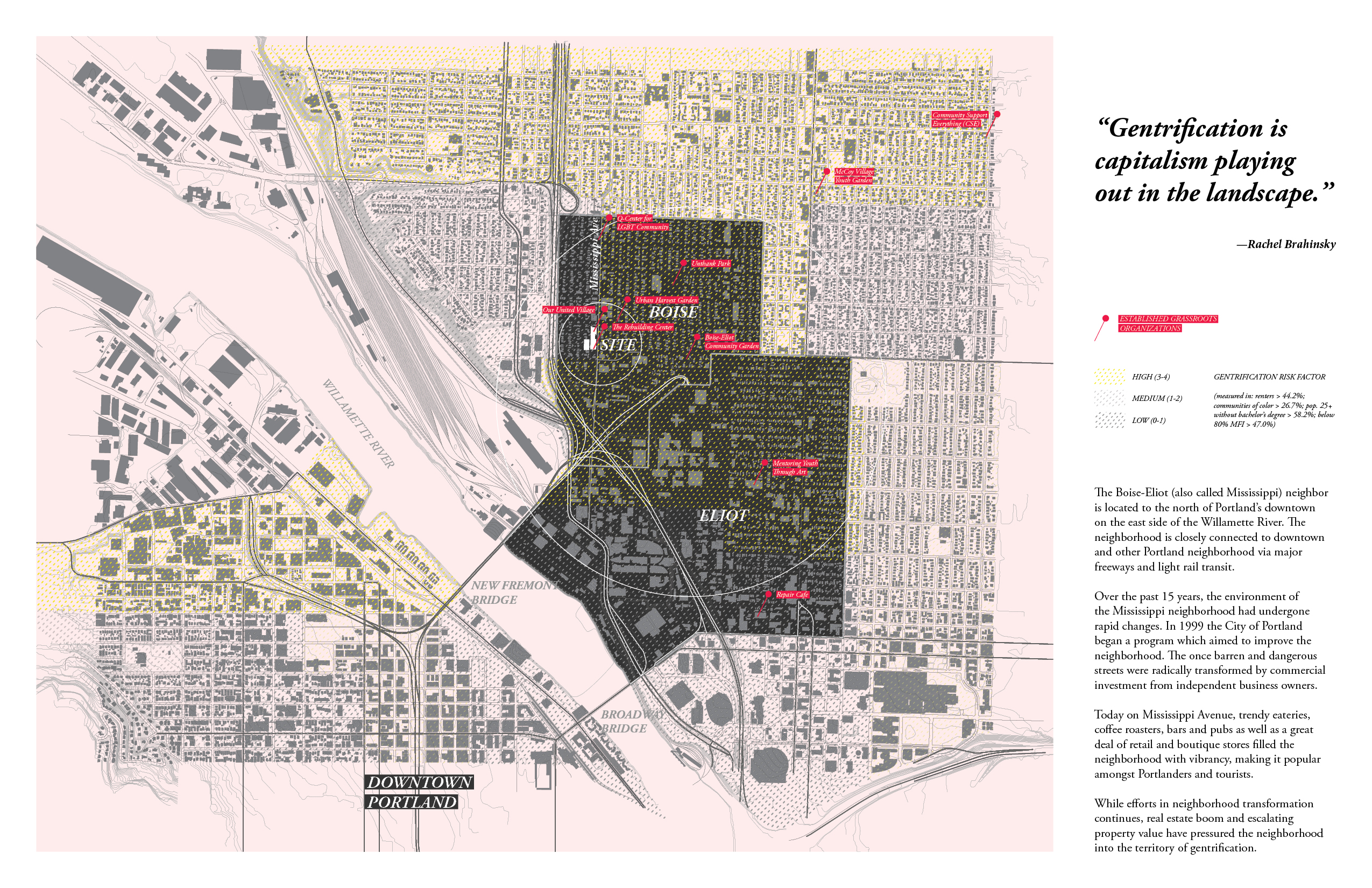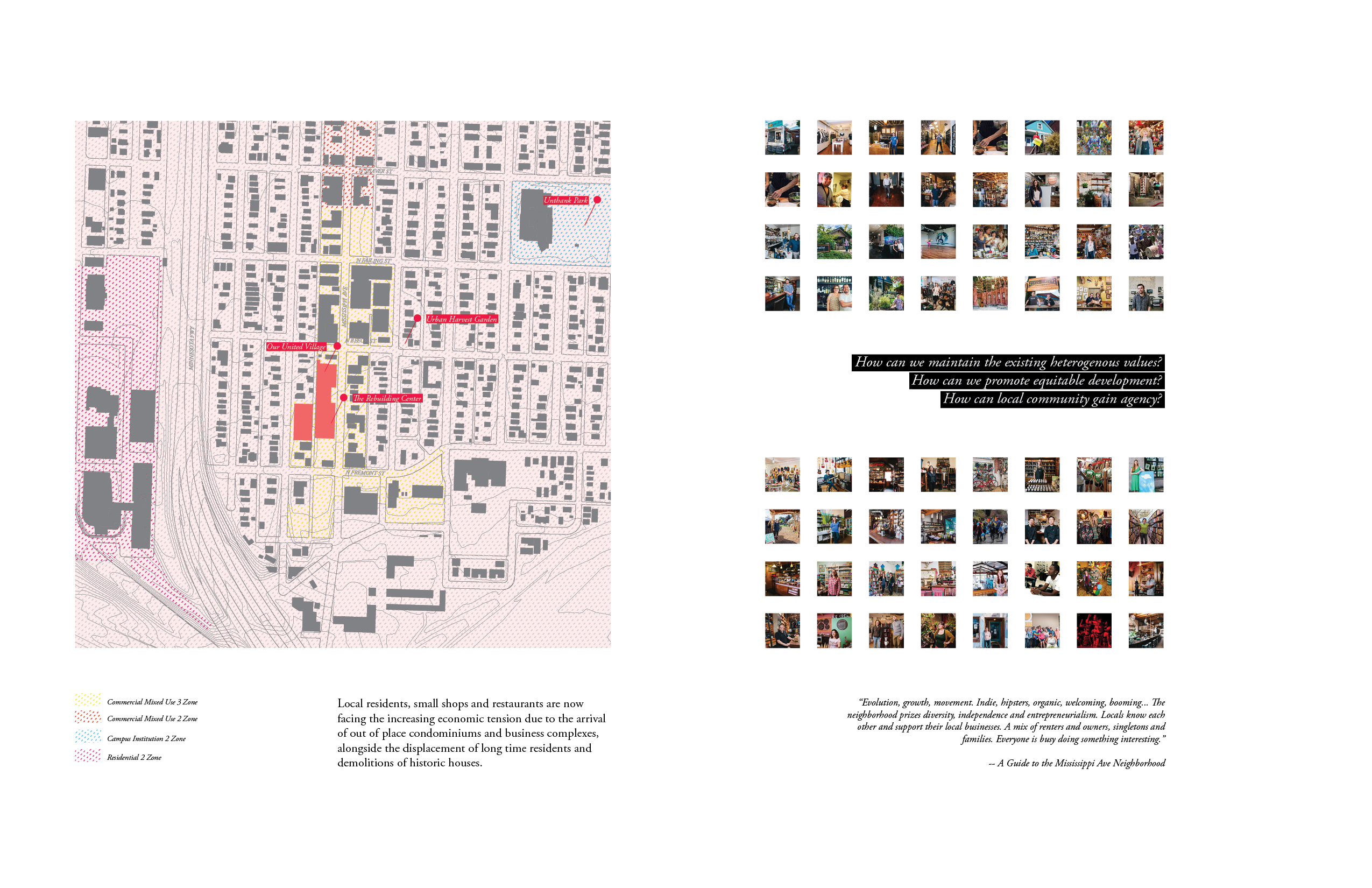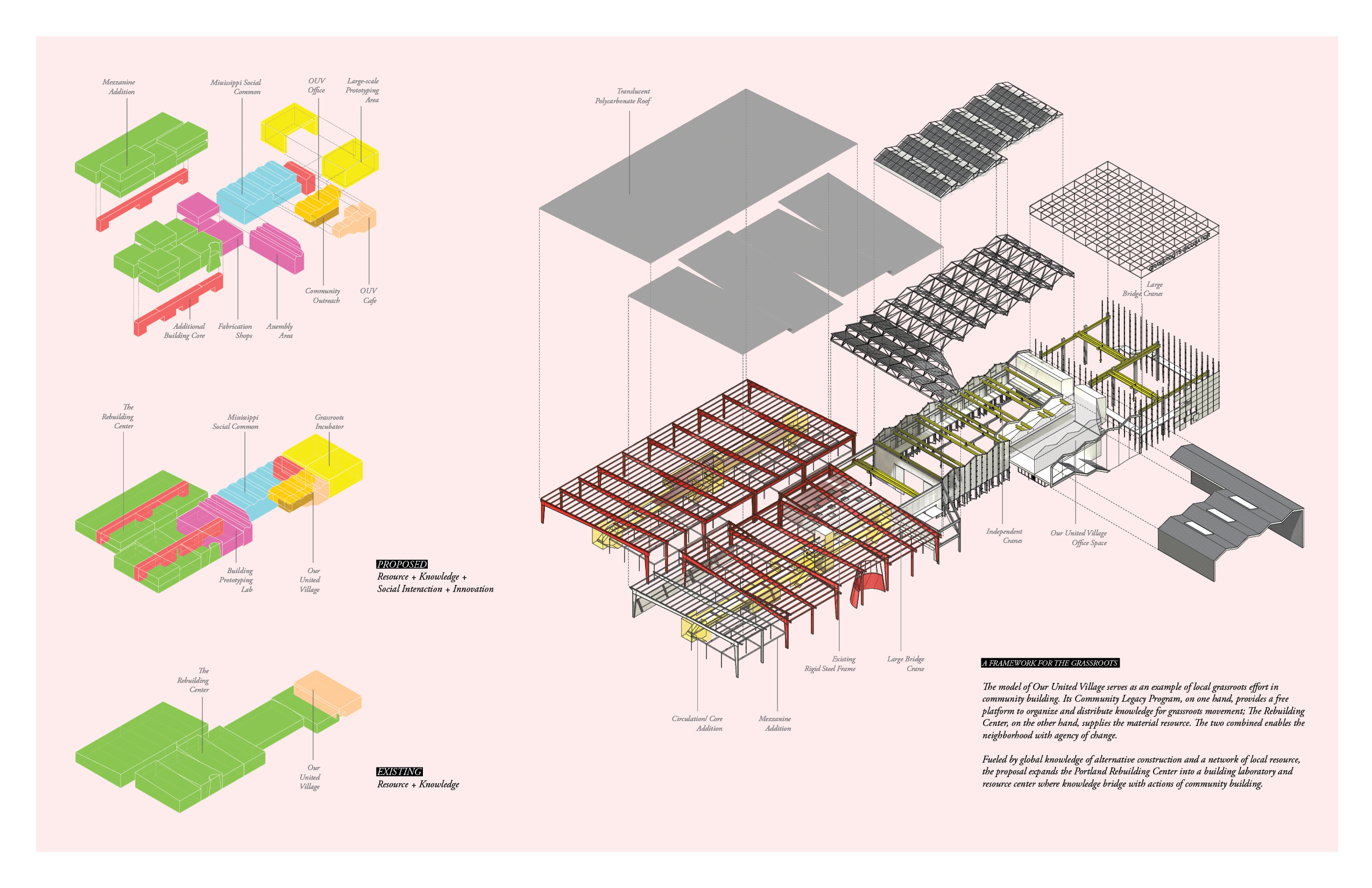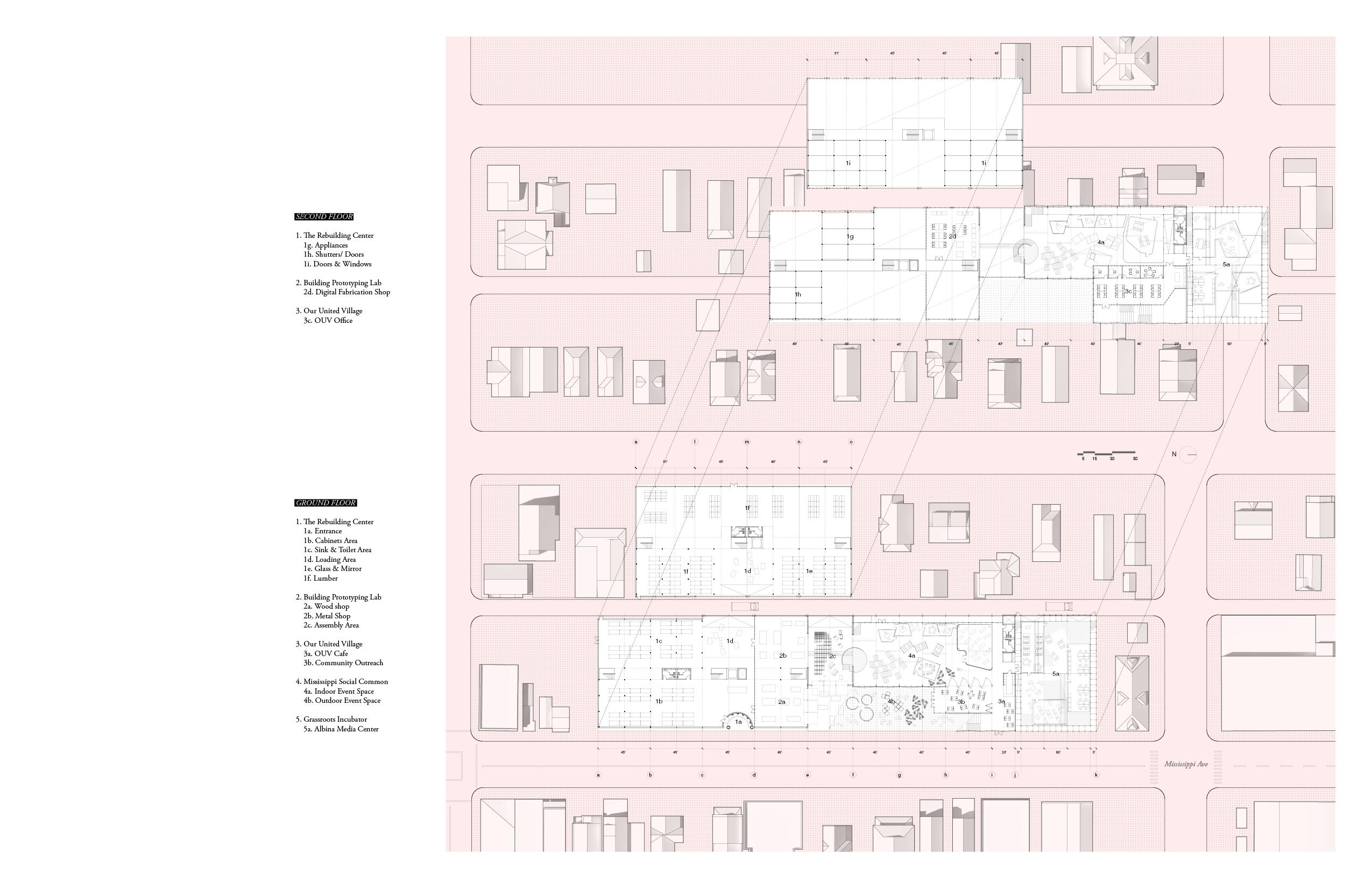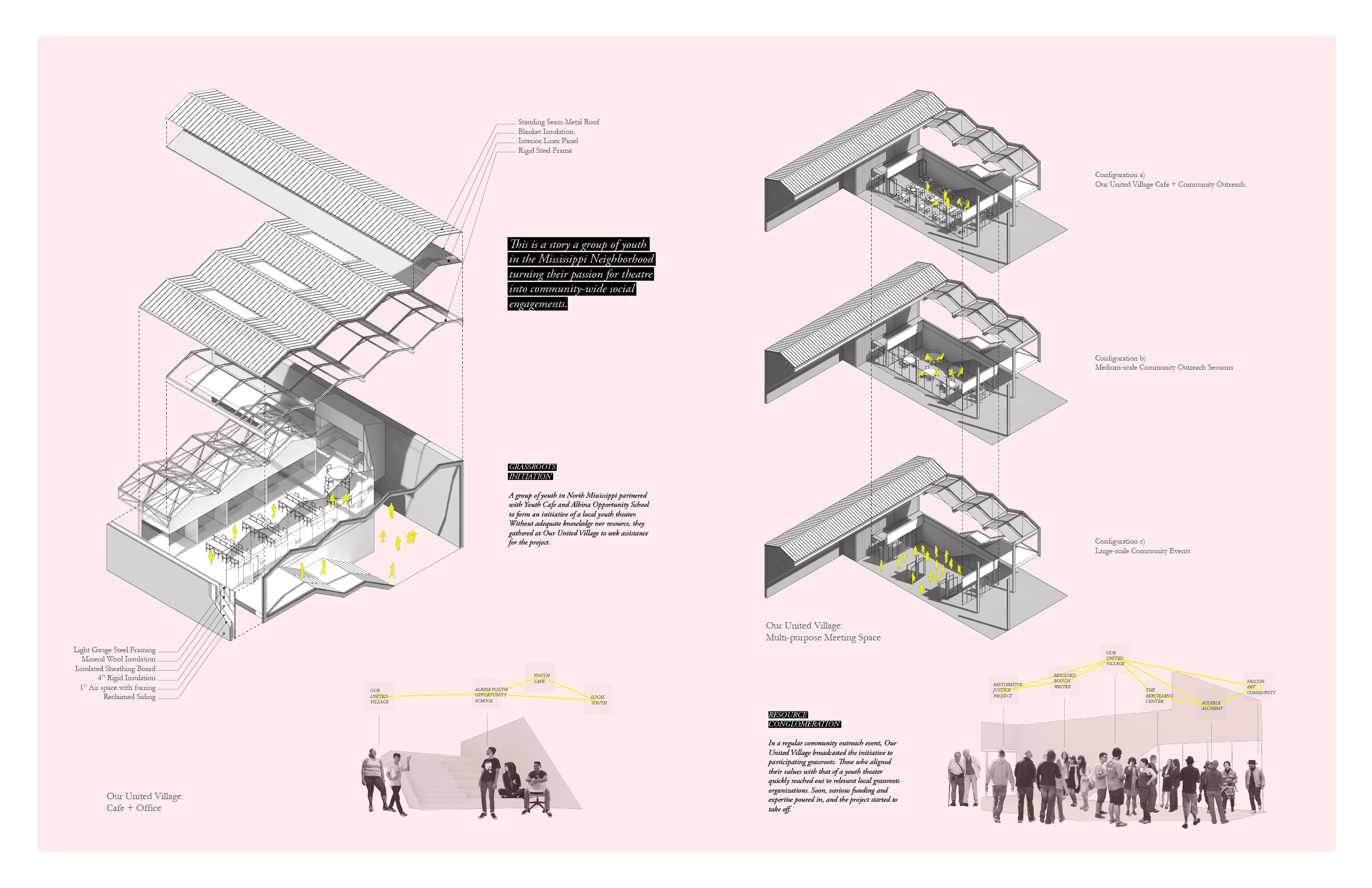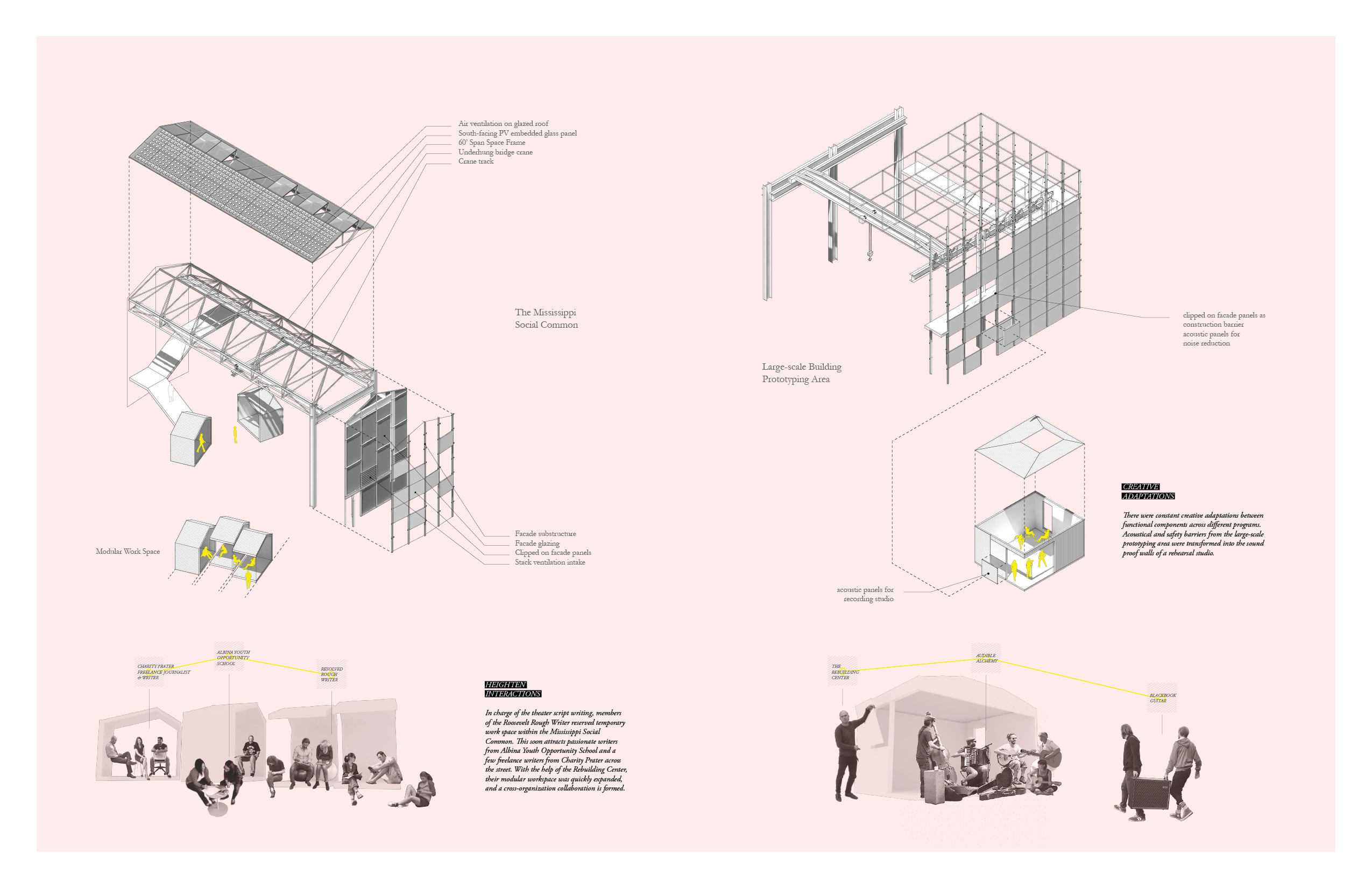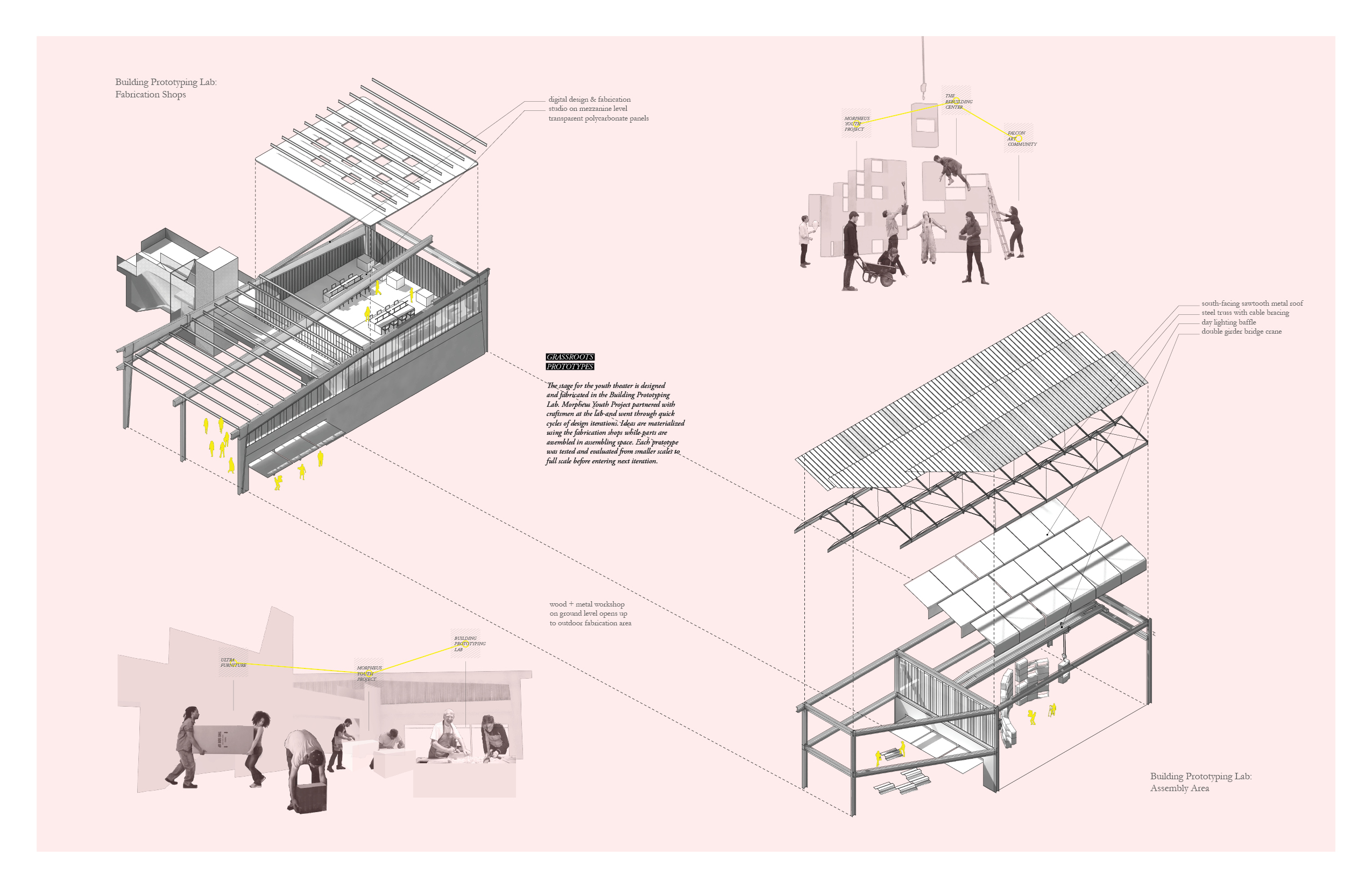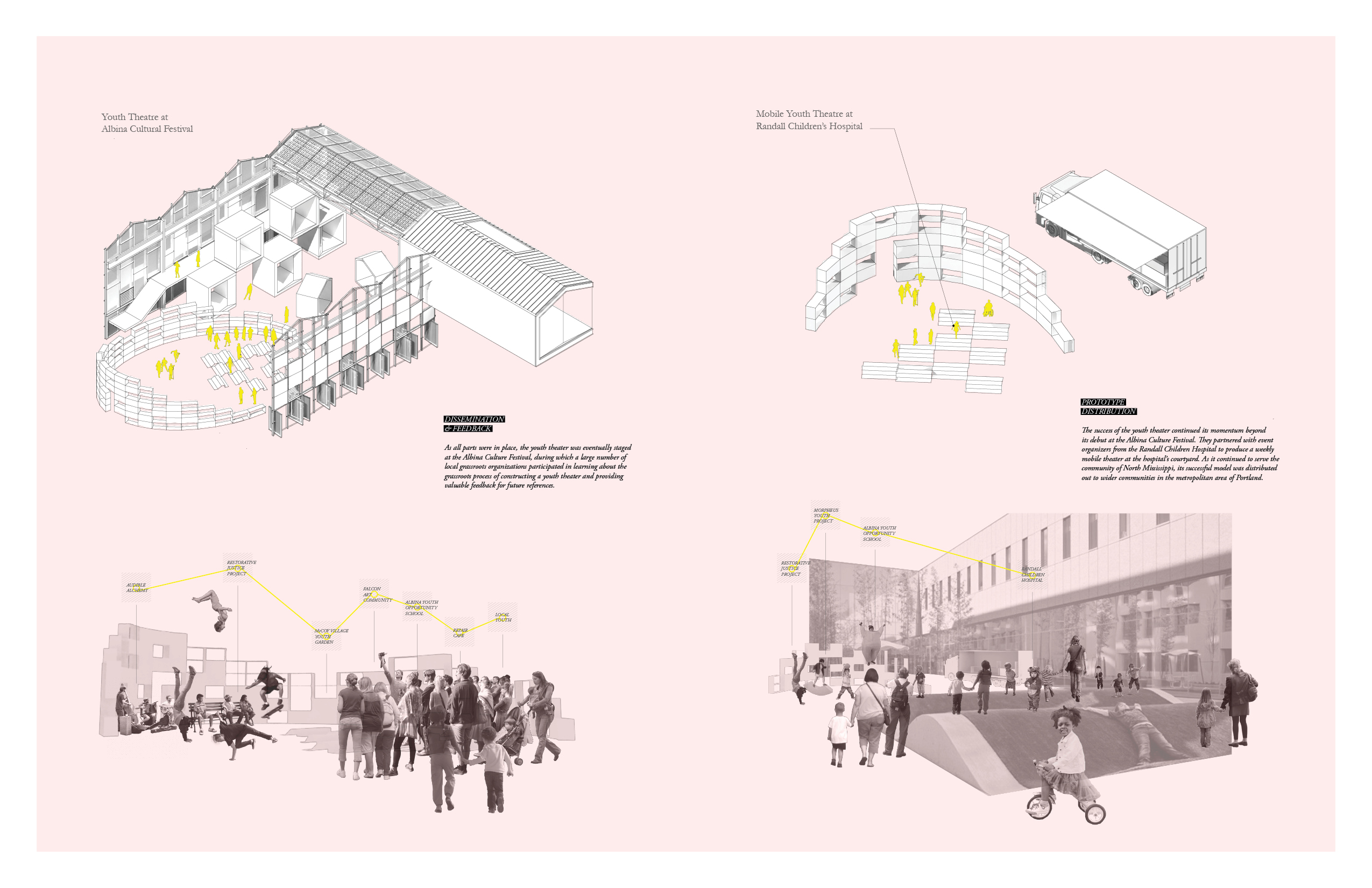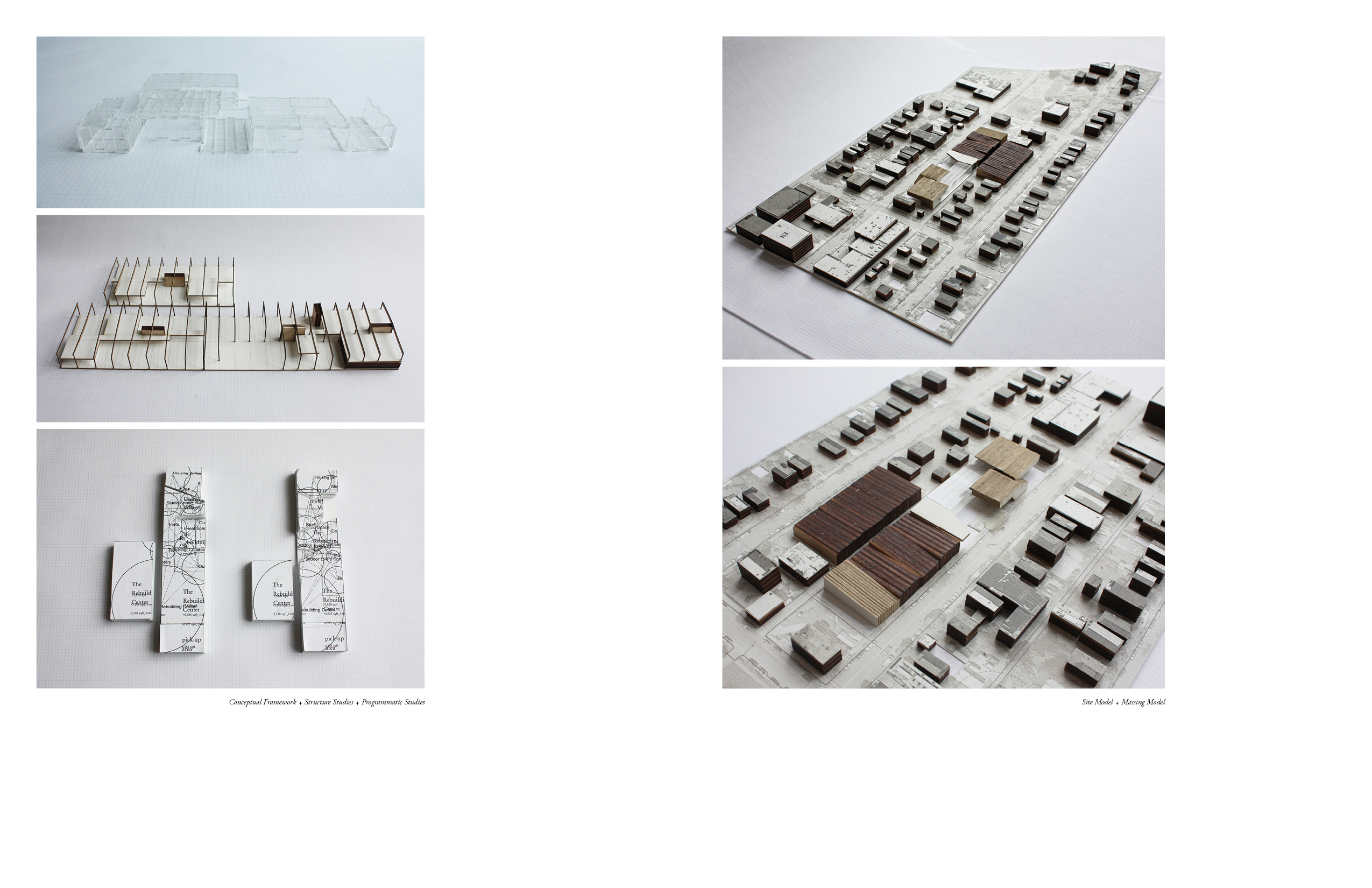Grassroots Prototypes
Undergraduate thesis
Advisor: Prof. Howard Davis
Grassroots urbanism emerges out of citizens’ active participation in the incremental and gradual making of the city. In contrast, topdown urban planning often induces largescale interventions that are fueled by heavy concentrations of political wills and capital funds. Top-down planning, ubiquitous in contemporary building culture, heavily reflects a model of centralized resource distribution and management, propelled by the industrial revolution. As the Internet becomes an indispensable component of modern life, it has drastically increased local and global connectivity, prompting growing distributions and access to knowledge and resources.
Utilizing current information infrastructure, this project aims to facilitate an agent-based network for individuals and communities within the Portland North Mississippi neighborhood to explore bottom-up urban interventions. Fueled by the global knowledge of alternative construction and a network of diverse local values, the project expands the existing Portland Rebuilding Center into a building laboratory where knowledge bridges actions of community building. With such agencies, communities now have the capacity to establish a robust local network that ultimately help diversify and strengthen their economic and social environment.
Program: community architectural laboratory Role: research, site analys,chematic design, design development, architectural detailing, modeling, visualization.
Location: Portland, OR, USA
Date: 2016
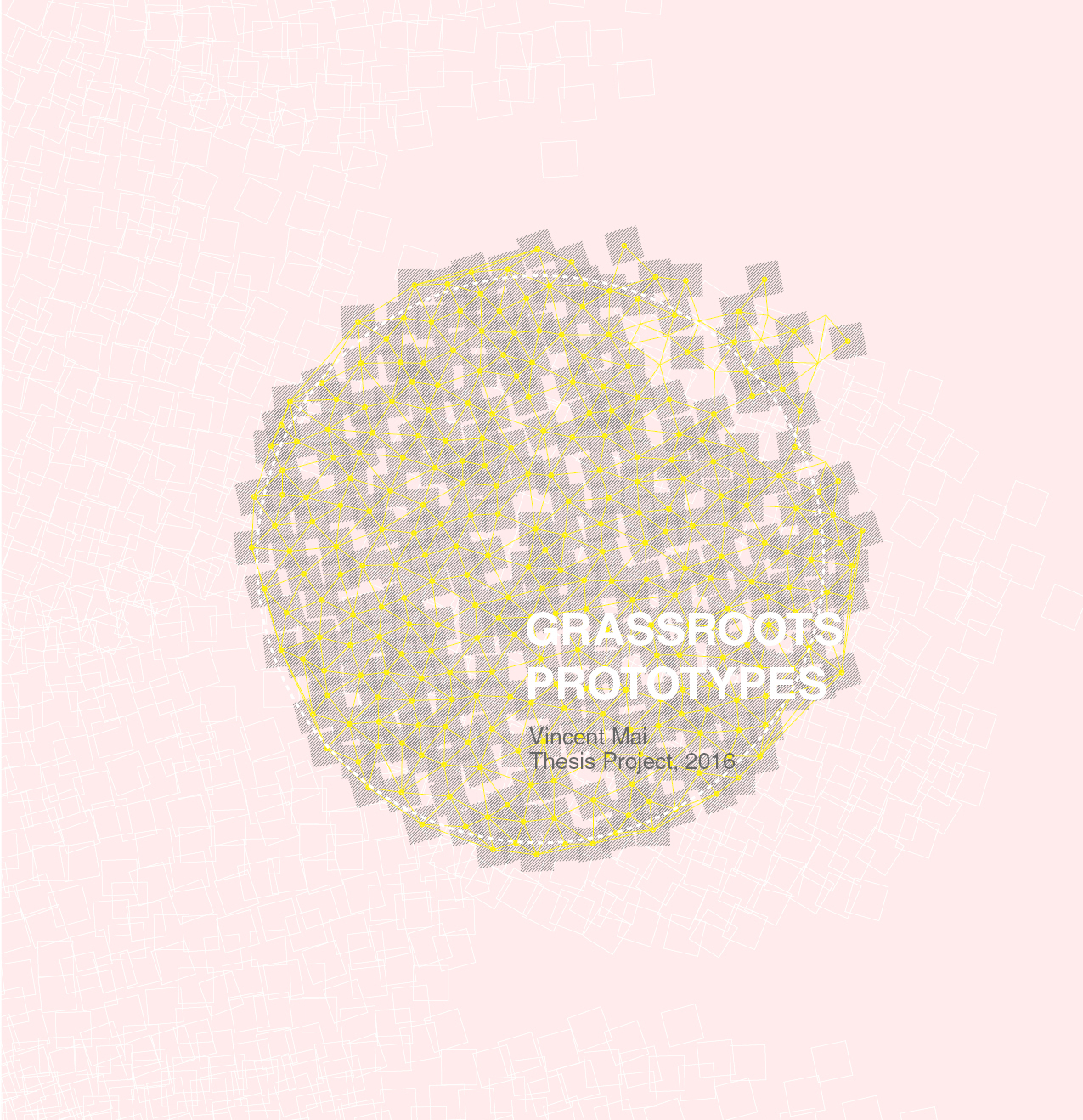







Conceptual diagrams envision the site as a place to foster collective know-how, that which affords neighborhood tools and agency to transform the build environment using local values.
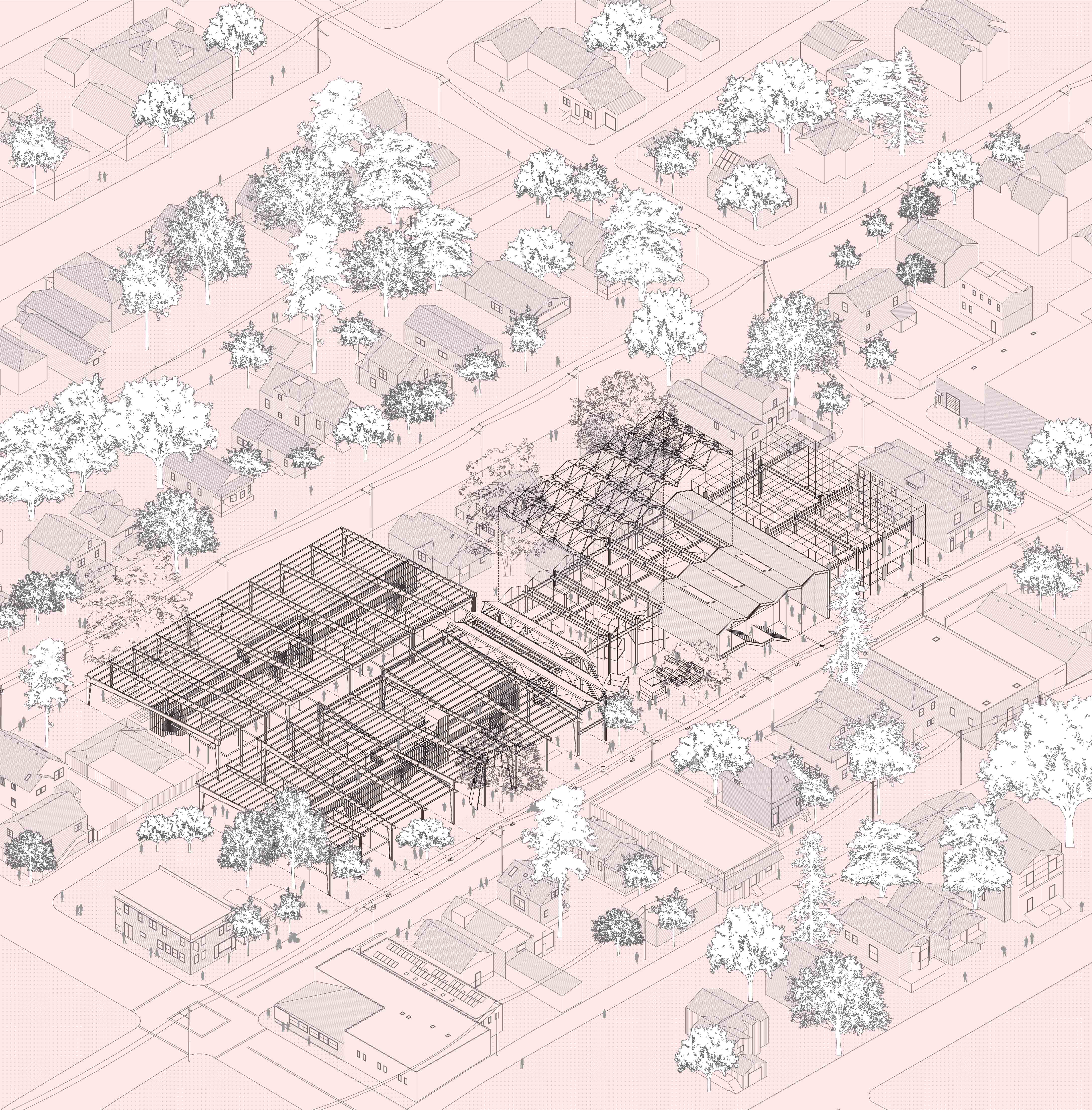
Neighborhood / Site Axonometric

Portland, OR District Diagram
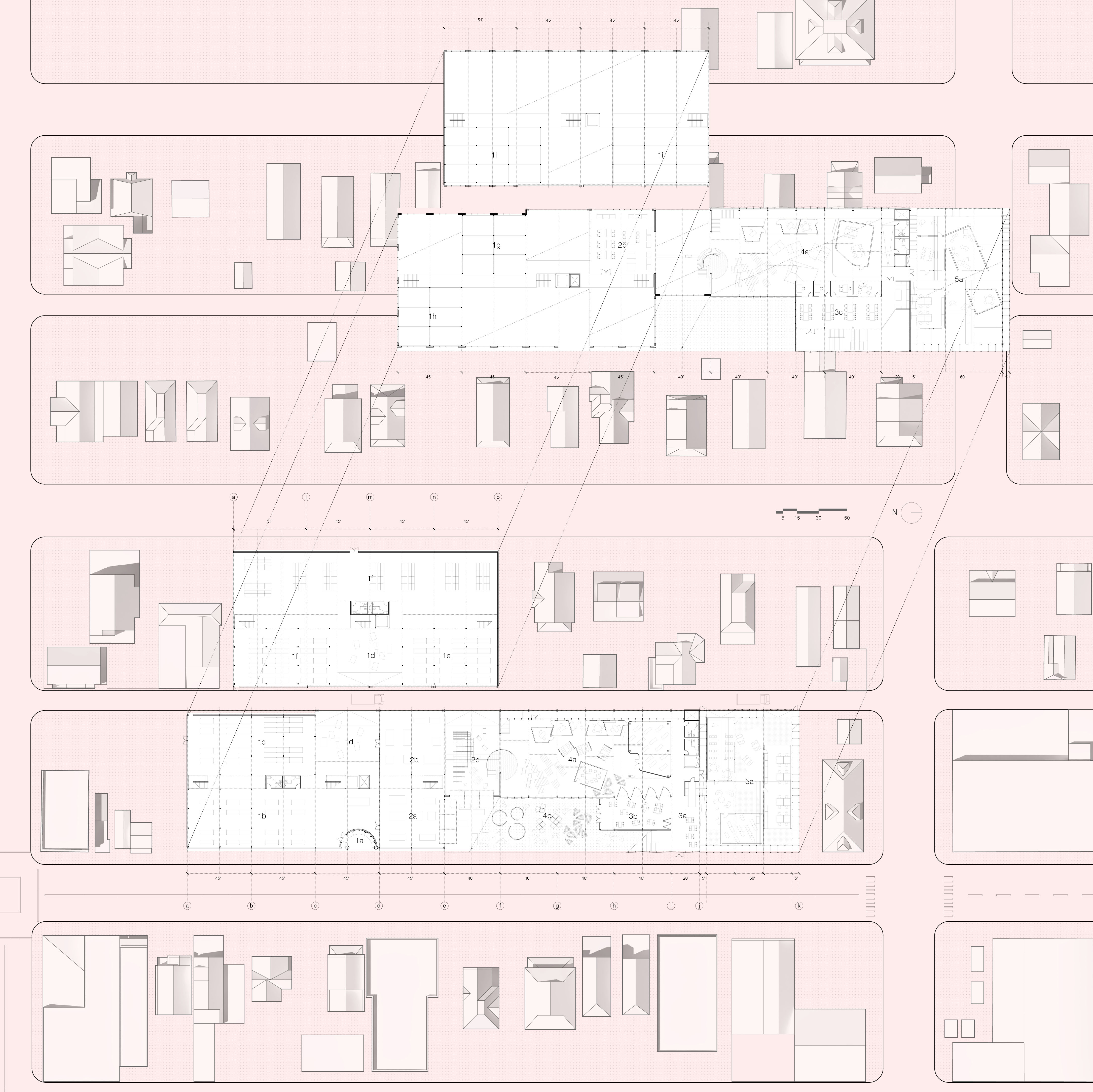
Site / Floor plan
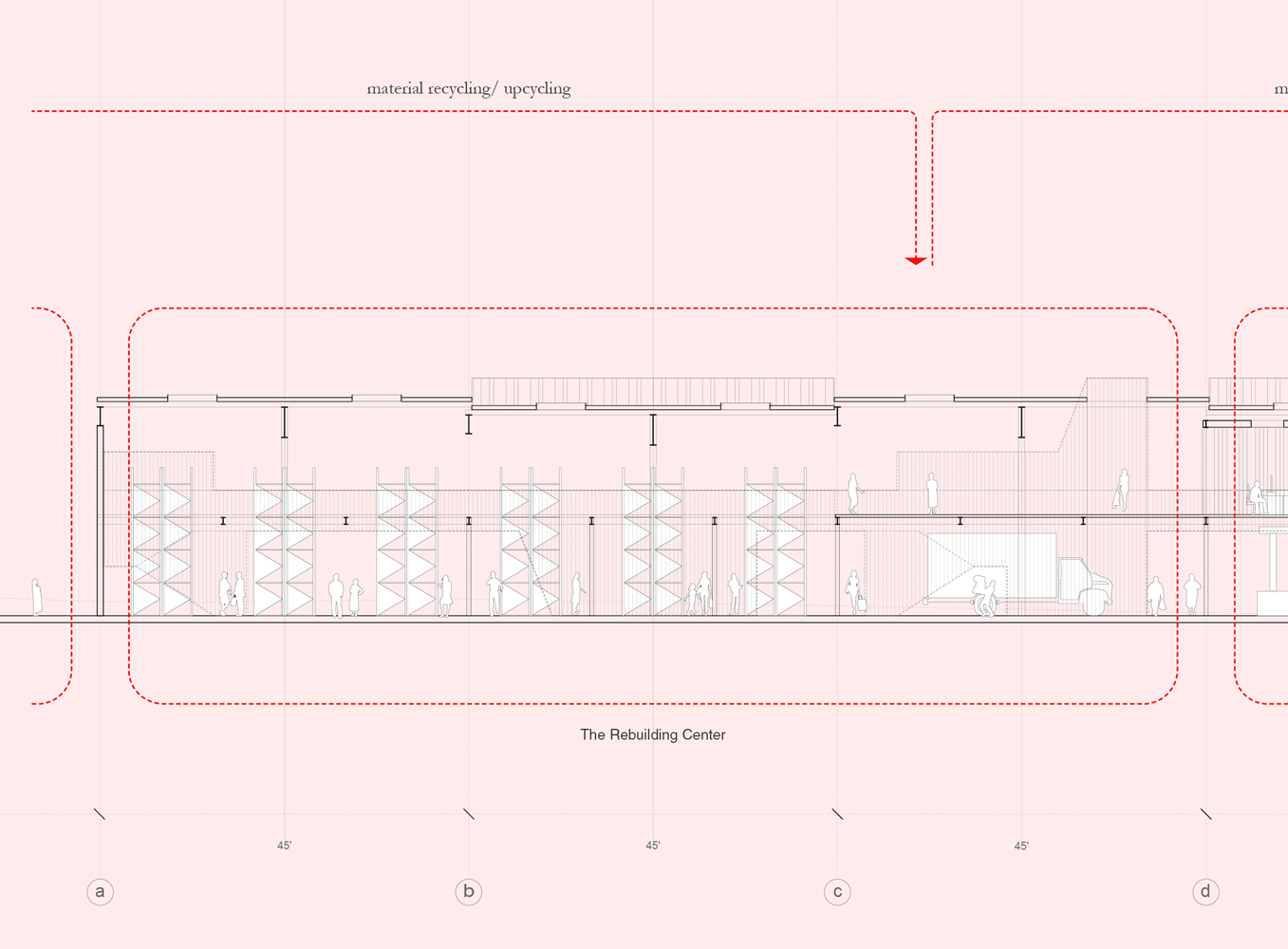
Longitudinal Section
Read thesis here ︎︎︎
